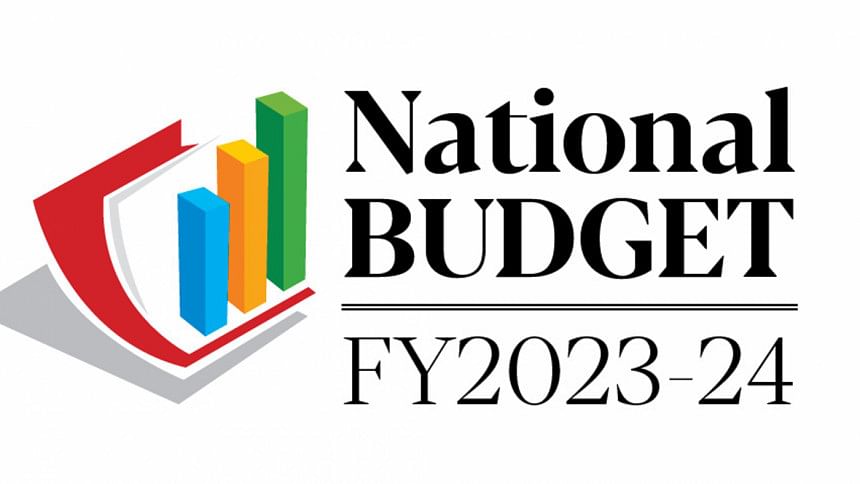Cut domestic borrowing to rein in inflation

Given the inflationary pressure in the economy, the government should consider cutting its dependence on domestic borrowing from the central bank to finance the budget deficit so as to contain inflation, said the Policy Research Institute of Bangladesh (PRI).
And it can reprioritise allocations for the Annual Development Programme (ADP) and cut its dependence on borrowing to finance a deficit of Tk 261,785 crore in the proposed budget of Tk 761,785 crore, said the research organisation.
Such measures will also restrain the government from printing new taka to meet its expenditures for achieving a high GDP growth, said Ahsan H Mansur, executive director of the PRI.
Because printing more taka in the time of high inflation will merely fuel the inflation further, he said.
His comment came at a press briefing organised by the PRI Study Centre on Domestic Resource Mobilisation on the proposed national budget for fiscal year 2023-2024.
Presenting a paper, Mohammad A Razzaque, director of the centre, said securing financing for the large budget deficit in a non-inflationary way would be challenging.
A lack of diversity in external and domestic financing instruments makes it difficult to secure the Tk 261,785 crore financing requirement envisaged in the budget, he said.
Bangladesh will need to mobilise about $10 billion (equivalent to about Tk 1 trillion) in net financing from external sources for budget financing, he said.
Given the need to pay back about $2 billion in principal repayments, the gross financing requirement will be about $12 billion. Bangladesh has never borrowed such a high amount in the past, said Razzaque.
"Limited or no access to the international capital market, and the recent downgrading of Bangladesh's sovereign rating by Moody's will not allow exploration of new sources in FY24," he said.
Domestically, the government plans to borrow around Tk 160,000 crore and almost the entire amount will need to come from the domestic banking system, he said.
However, it will be challenging since banks are already suffering from a liquidity shortage and slow deposit growth, said Razzaque.
Government borrowing from scheduled banks will lead to crowding out of the private sector and push up the lending interest rates sharply, he warned.
Under such a situation, the government will need to borrow from the central bank which is likely to create further inflationary pressures, he added.
The PRI said borrowing from the central bank would accelerate further in the final two months of fiscal year 2022-23, taking total government borrowing from the central bank to more than Tk 100,000 crore.
The pace of government borrowing from the central bank is likely to accelerate further in fiscal year 2023-24 to around Tk 130,000 crore to Tk 140,000 crore, which is likely to accelerate further, it said.
However, the government can easily reduce administrative expenditure and ADP allocation for the time being so that it does not need to go for excessive borrowing from the banking system and print taka, said Mansur.
If it wants, it can allocate the money to social safety net schemes, he said.
Some 52 of social safety net allocations go behind paying pension and saving certificate interests and the remaining 48 per cent is very low for those who actually are financially insolvent, he said.
However, if the government prints taka to maintain expenses of the budgetary allocations, inflation will jump again in the markets, he said.
The economist said the current high rate of inflation was created mainly for some wrong decisions.
For instance, the government thought that a lot of investment will come about if the interest rate is artificially kept at 9 per cent. In reality, the investment did not come about at the expected level, he said.
Moreover, over the last year or so, the government released a lot of US dollars in the domestic markets against the local currency taka, which was an unwise and imprudent decision, Mansur also said.
The government could have sold $1 billion or $2 billion in the markets but sold $15 billion to $20 billion which was certainly an imprudent and unwise decision, he added.
The government could have relaxed the exchange rate and increased the interest rate to make the taka attractive, he said.
Without taking proper measures the government instead wasted a full year giving false hope that the exchange rate would stabilise, he said.
Had the government acted tactfully in September or October last year, the exchange rate could have been maintained and it would not have needed to increase the bank interest rate, he said.
The tax to GDP ratio is low and it is difficult to increase the ratio within one year, said MA Razzaque, research director of the PRI.
If import bills cannot be paid, it may lead to the crash of the economy whereas if inflation can not be contained, the financially insolvent may face problems. Hence, adjustments may be a bit painful, he said.
Over the last one year, no policy was taken to contain the inflation. The current foreign currency reserve with the central bank is still good enough to tackle the crisis, he said.
The ADP can be reduced a bit, suggested Razzaque.
If the interest rate is not increased, inflation containment might not be possible and even a 5 per cent GDP growth is good in times of crisis, he said.
Other countries can reduce inflation hiking interest rates although there is a challenge of increasing non-performing loans. But it is possible to give relief to low-income people by increasing allocations to social safety net programmes, he said.

 For all latest news, follow The Daily Star's Google News channel.
For all latest news, follow The Daily Star's Google News channel. 



Comments